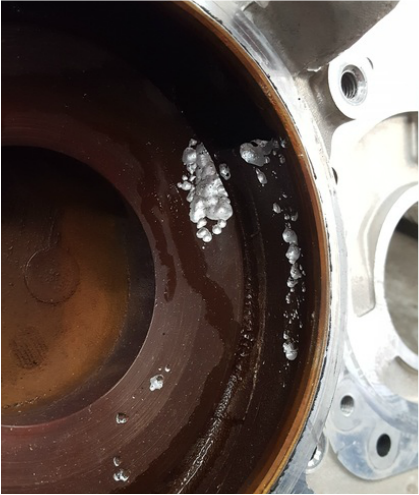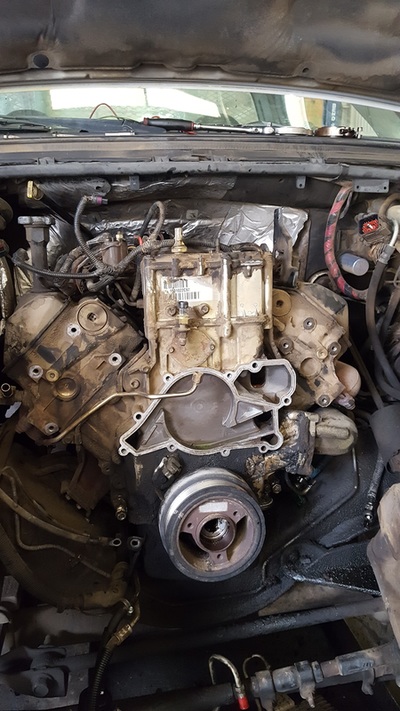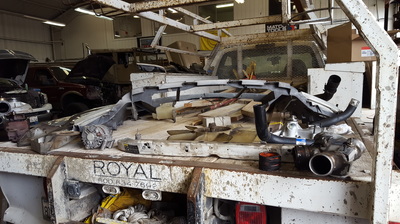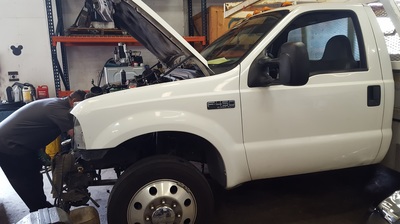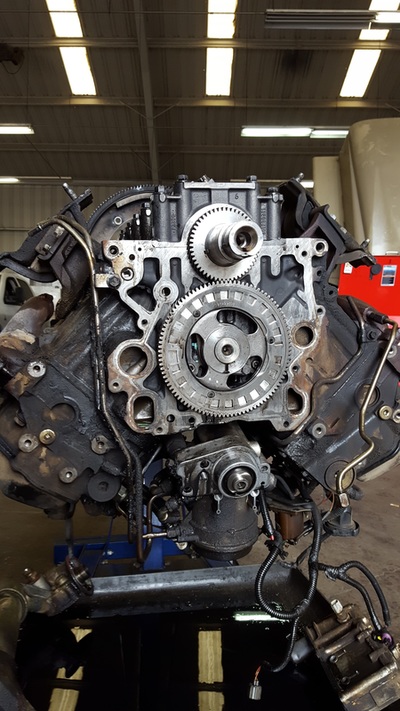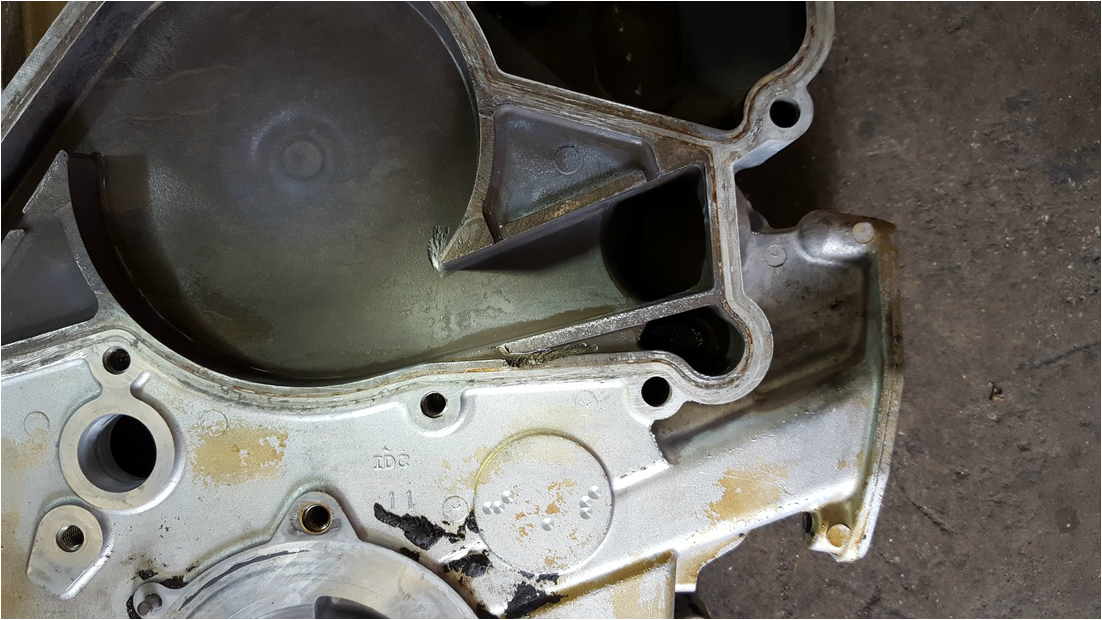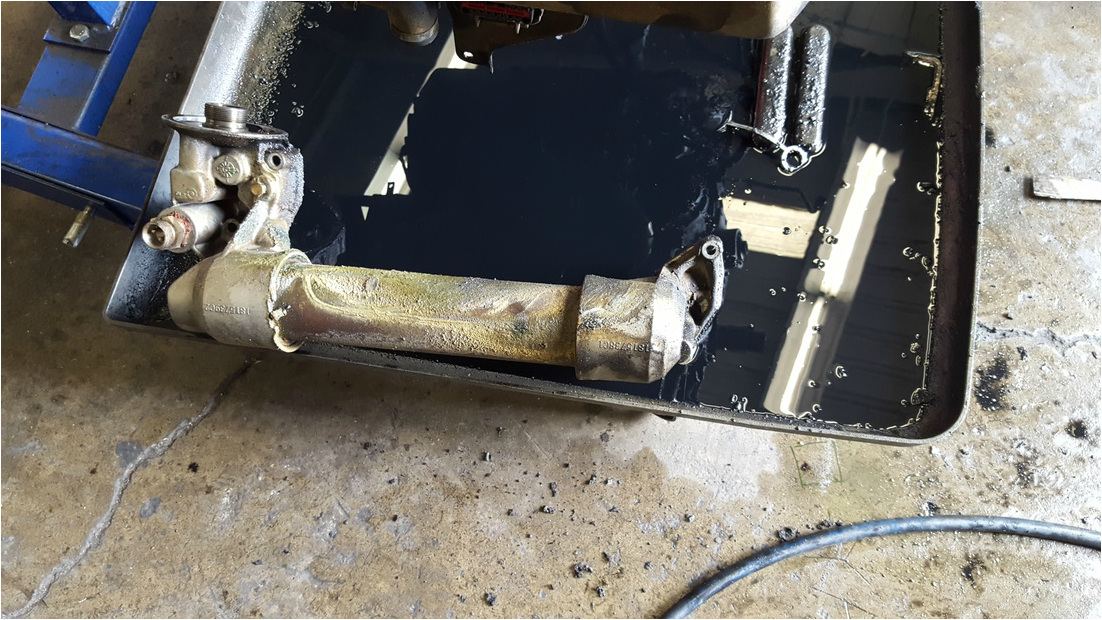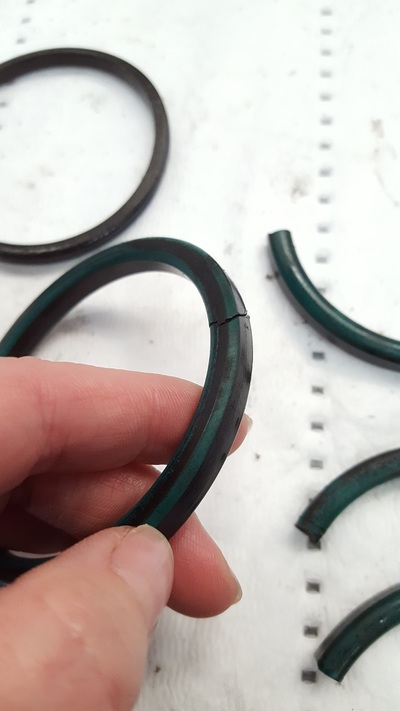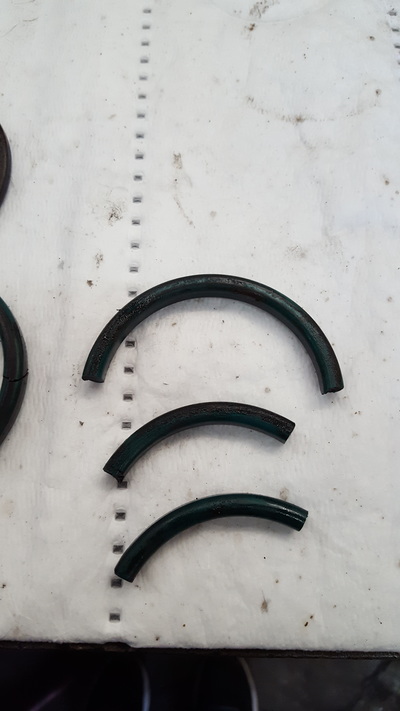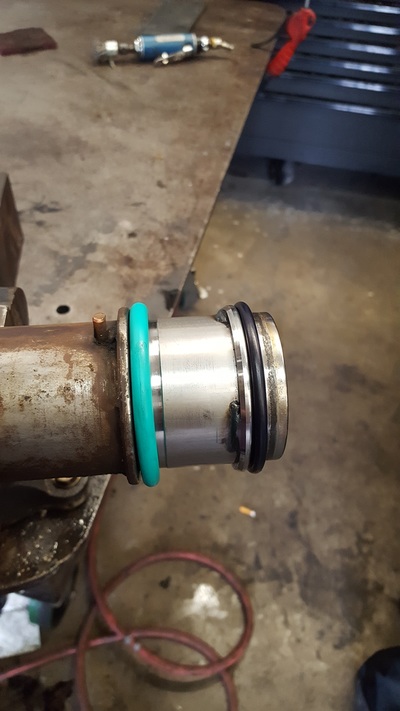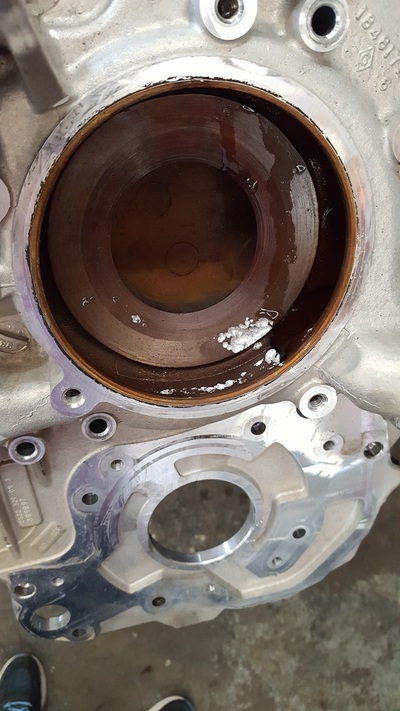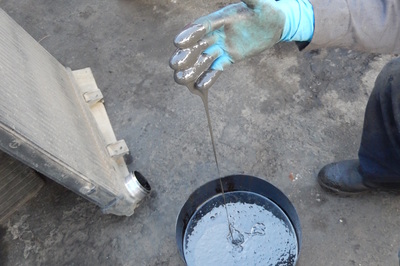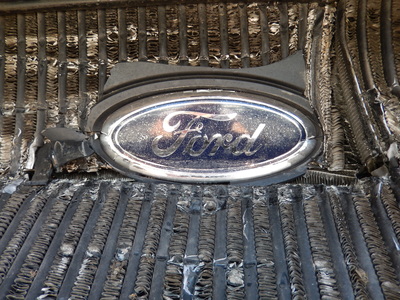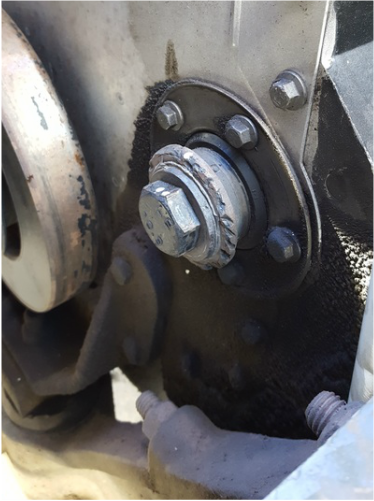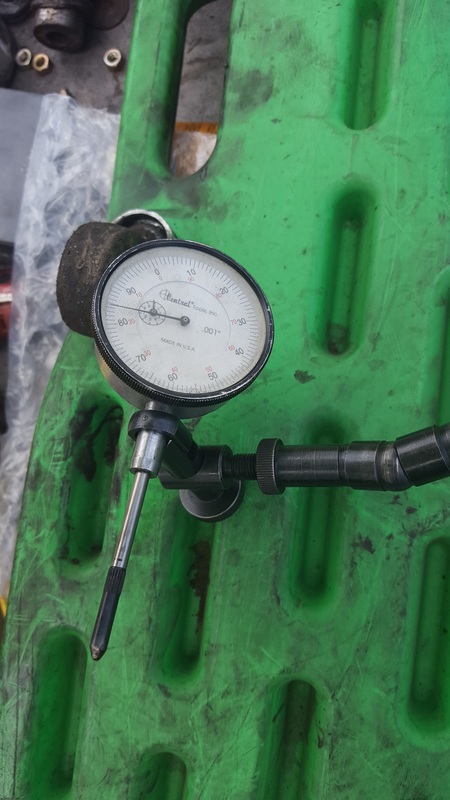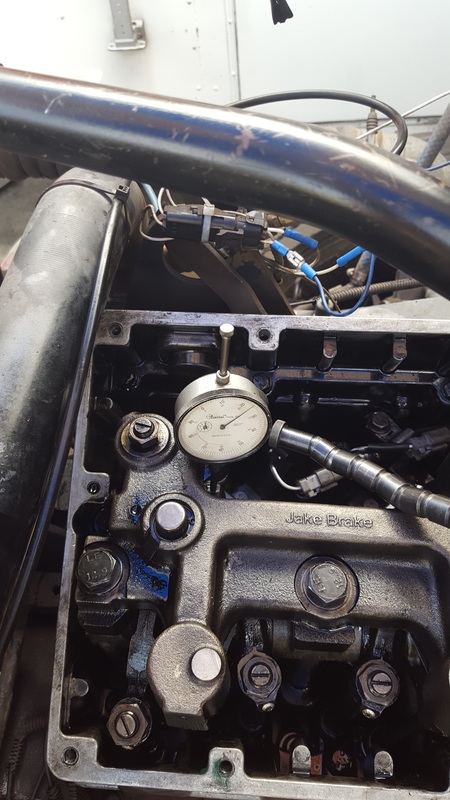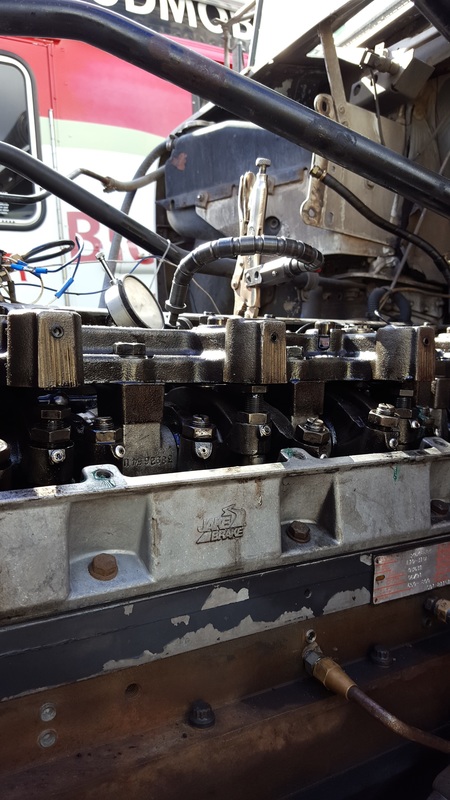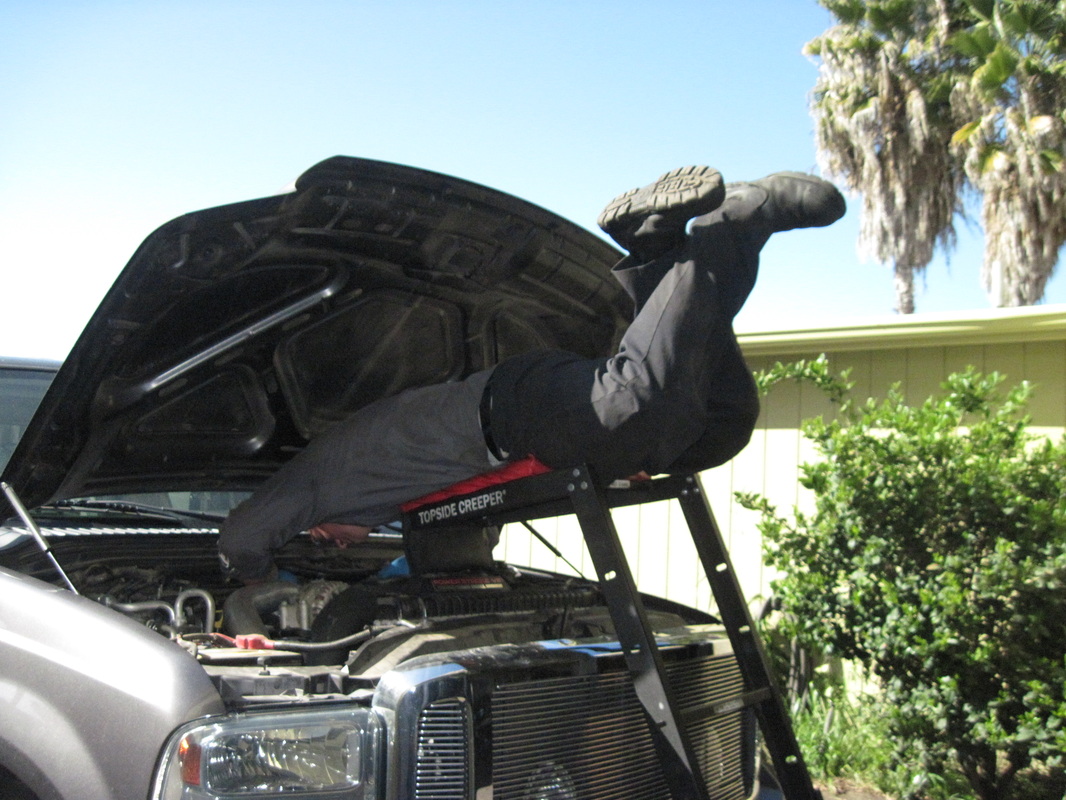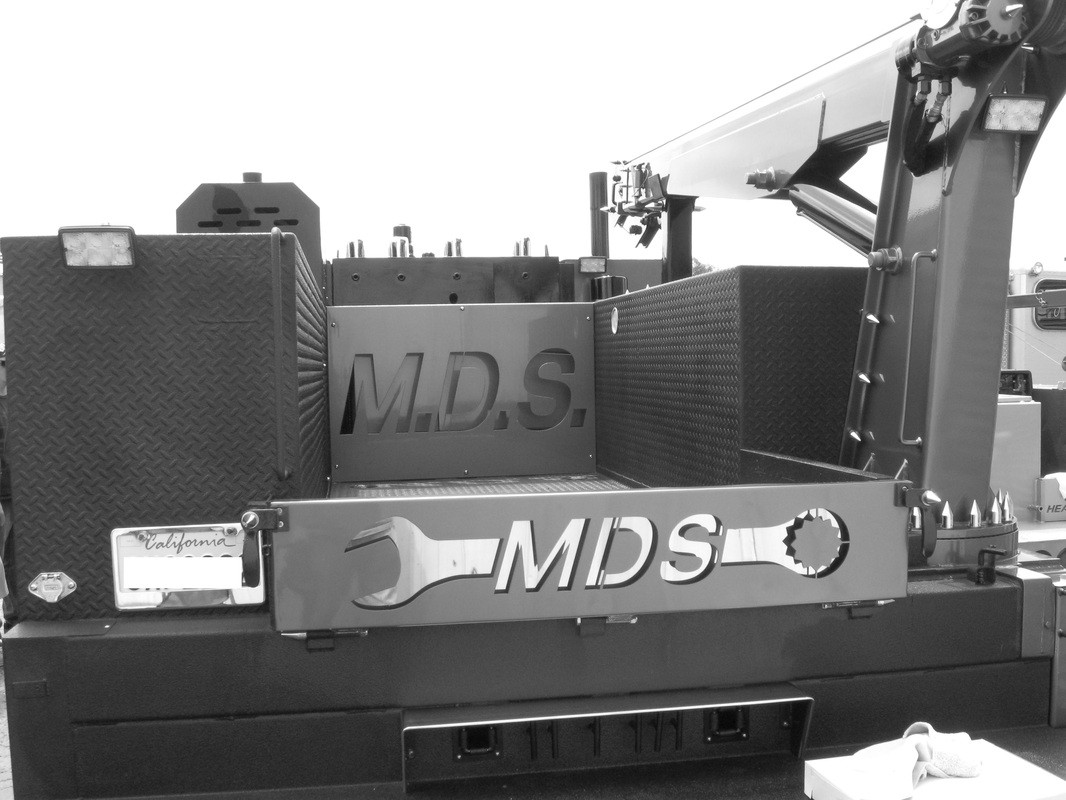Cavitation can be a serious problem...
Cavitation is defined on Wikipedia as: The formation of vapour cavities in a liquid – i.e. small liquid-free zones ("bubbles" or "voids") – that are the consequence of forces acting upon the liquid. It usually occurs when a liquid is subjected to rapid changes of pressure that cause the formation of cavities where the pressure is relatively low. When subjected to higher pressure, the voids implode and can generate an intense shock wave. Cavitation is a significant cause of wear in some engineering contexts.
We had a customer bring in their 7.3 with a coolant leak on the front cover. Our mechanic was concerned it could be a cavitation issue. We have seen cavitation wipe out an entire engine. Thankfully, that was not the case for this customer.
We had a customer bring in their 7.3 with a coolant leak on the front cover. Our mechanic was concerned it could be a cavitation issue. We have seen cavitation wipe out an entire engine. Thankfully, that was not the case for this customer.
The front cover showed minor signs of cavitation in the water pump mounting surface and the water pump impeller cavity. The oil cooler was found to be leaking at the seals and the exhaust manifolds had 2 broken bolts. The customer opted to have those repairs made as well while the engine was out. Taking care of all 3 items at the same time helped to save the customer on labor expense in the future.
Source credit: https://en.wikipedia.org/wiki/Cavitation
We have seen some extreme cooling package issues and
Proper coolant maintenance can go a long way...
Our shop recommends coolant flush every 2 years or 50,000 miles.
Ford sells a coolant additive that helps to reduce cavitation in the Super Duty.
Test strips are available to check the pH of your coolant. Improper pH creates a bigger risk for cavitation.
Remember when filling your coolant to use the proper ratio of water to antifreeze and use distilled water. Tap and well water can throw off your coolants pH.
If you ever find yourself in a situation where you must add tap or well water to your coolant, be sure to have your coolant completely flushed as soon as possible.
Remember to regularly check your coolant. Make sure to check only when your engine is completely cooled. A hot radiator cap can blow off and cause severe burns if checked when hot or under pressure.
Ford sells a coolant additive that helps to reduce cavitation in the Super Duty.
Test strips are available to check the pH of your coolant. Improper pH creates a bigger risk for cavitation.
Remember when filling your coolant to use the proper ratio of water to antifreeze and use distilled water. Tap and well water can throw off your coolants pH.
If you ever find yourself in a situation where you must add tap or well water to your coolant, be sure to have your coolant completely flushed as soon as possible.
Remember to regularly check your coolant. Make sure to check only when your engine is completely cooled. A hot radiator cap can blow off and cause severe burns if checked when hot or under pressure.

